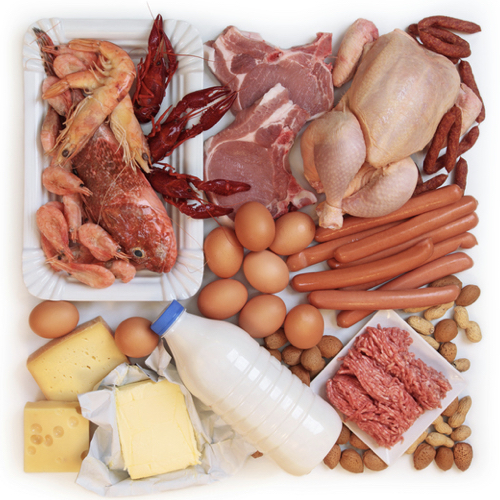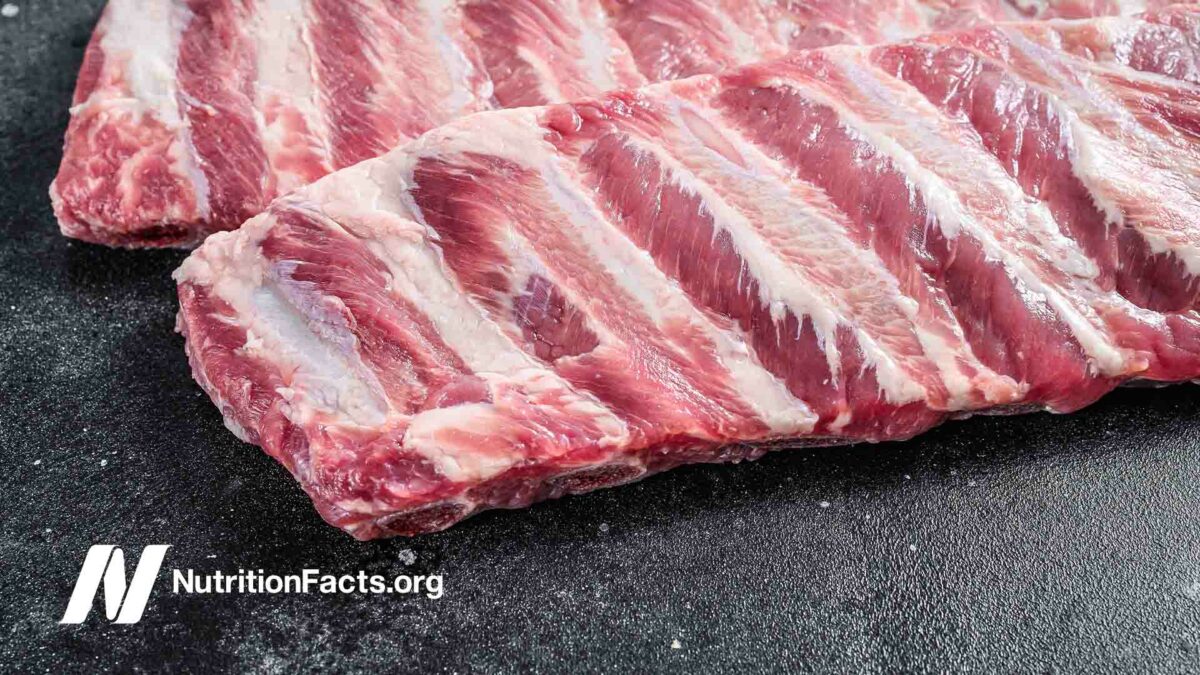
Animal Protein
Adults require about 0.8 or 0.9 grams of protein per healthy kilogram of bodyweight per day. Does it matter if that protein is from animals or plants? Apparently yes.
The adverse effects associated with long-term, high protein-high meat diets may include disorders of bone and calcium balance, increased cancer risk, disorders of the liver, and worsening of coronary artery disease.
What about our kidneys? Harvard University researchers followed thousands of healthy women for more than a decade to look for the presence of excess protein in their urine, a sign that kidneys may be starting to fail. The researchers found three dietary components associated with this sign of declining kidney function: animal protein, animal fat, and cholesterol. Each is found in only one place: animal products. No association was found between kidney function decline and intake of plant protein or fat.
High animal protein intake may induce hyperfiltration, a dramatic increase in the kidney’s workload. Within hours of consuming meat, whether beef, chicken, or fish, our kidneys may rev up into hyperfiltration mode, whereas an equivalent amount of plant protein causes virtually no such stress on the kidneys.
Animal protein consumption also appears to trigger the release of insulin-like growth factor 1 (IGF-1), a cancer-promoting growth hormone. IGF-1 levels rise during childhood to power our development and diminish when we reach adulthood. Should the levels remain too high, however, our cells will constantly receive a message to grow, divide, and keep going and growing. Not surprisingly then, the more IGF-1 in our bloodstream, the higher our risk for developing some cancers. Animal protein appears to stimulate IGF-1 production whether it’s the muscle proteins in meat, the egg-white protein in eggs, or the milk proteins in dairy. After just 11 days of cutting back on animal protein, however, our IGF-1 levels may drop by 20 percent.
Watching our animal-to-plant protein ratio may be useful for cancer prevention. The largest diet and bladder cancer study found that a 3 percent increase in animal protein consumption was associated with a 15 percent increased risk of bladder cancer, while a 2 percent increase in plant protein intake was associated with a 23 percent decreased cancer risk.
Dr. Ornish and colleagues were able to demonstrate that a nearly exclusively plant-based diet allowed for an apparent reversal in early stage cancer growth, so the ideal animal-to-plant protein ratio may be quite low.
For substantiation of any statements of fact from the peer-reviewed medical literature, please see the associated videos below.
Image Credit: egal / Thinkstock. This image has been modified.
Popular Videos for Animal Protein

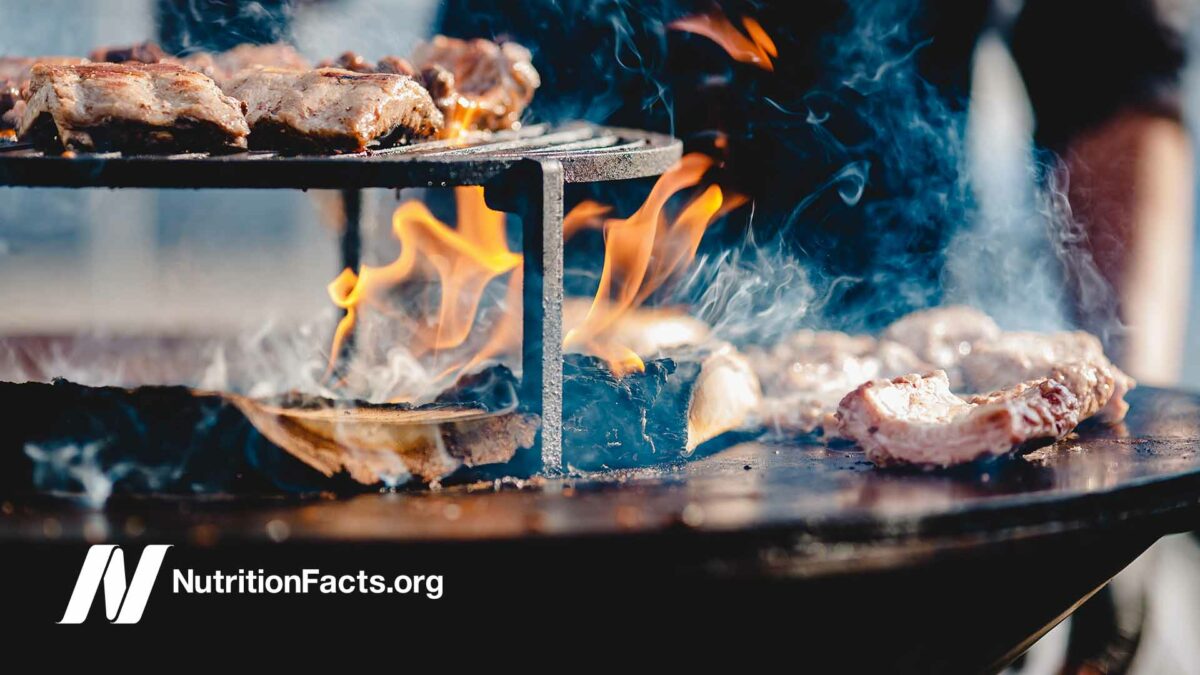
Animal Protein, Pregnancy, and Childhood Obesity
What pregnant women eat may affect even the health of their grandchildren.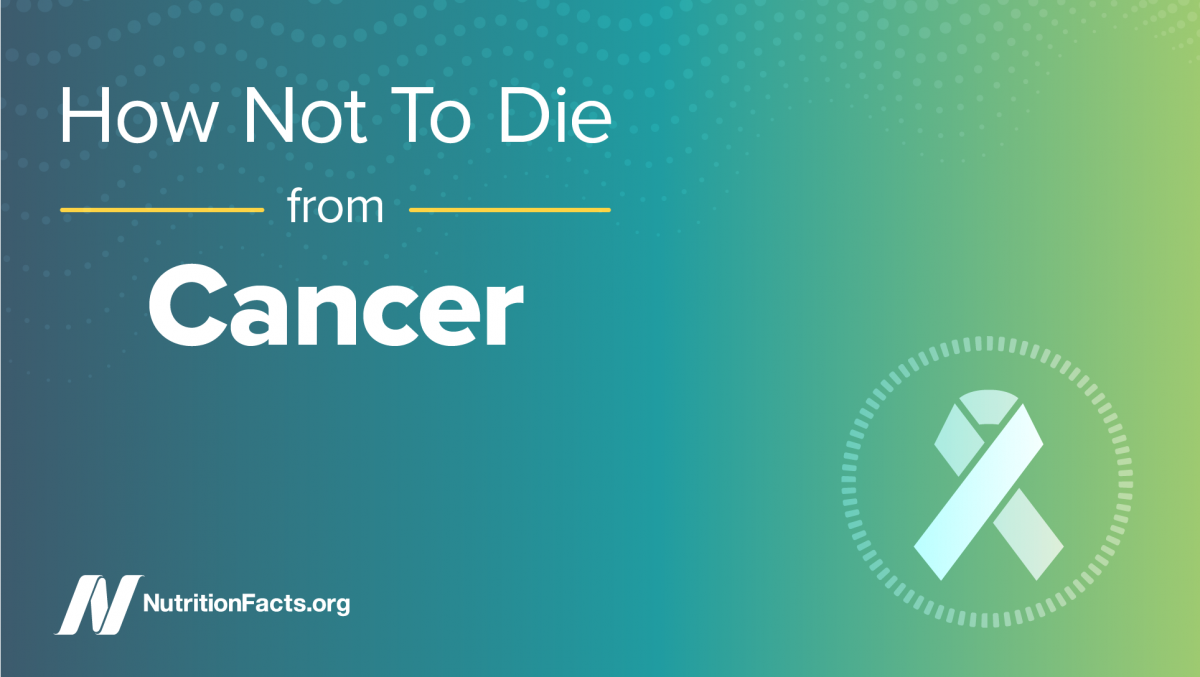
How Not to Die from Cancer
What happens when we put cancer on a plant-based diet?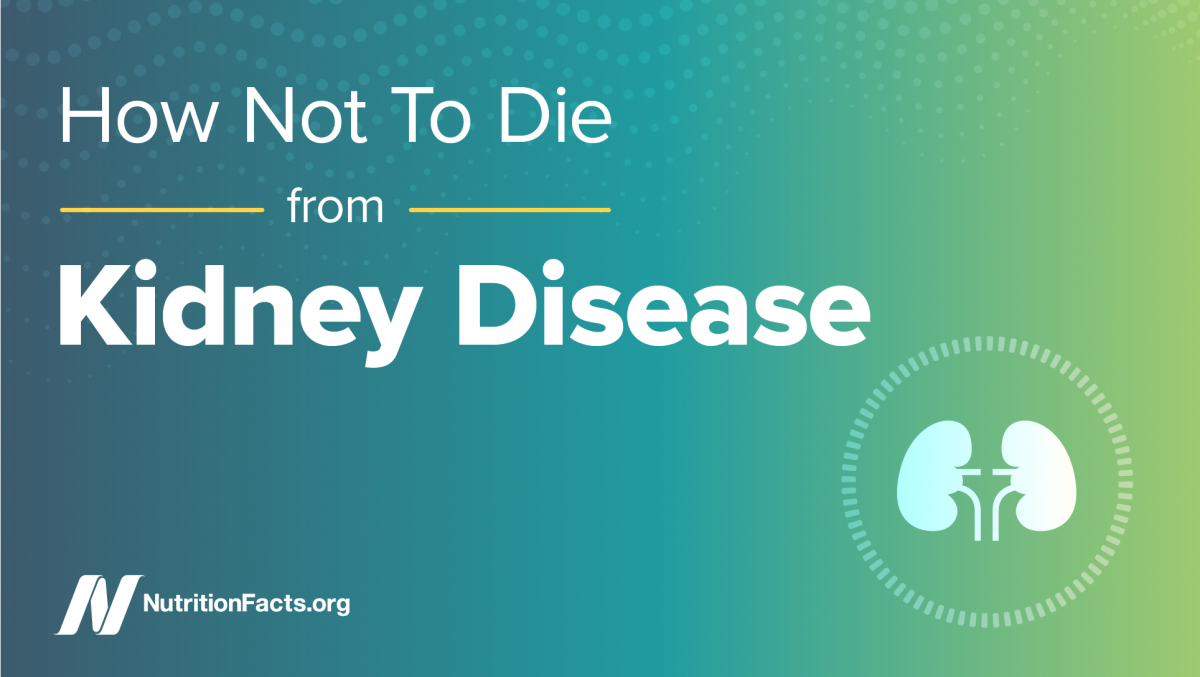
How Not to Die from Kidney Disease
What are the three significant dietary risk factors for declining kidney function?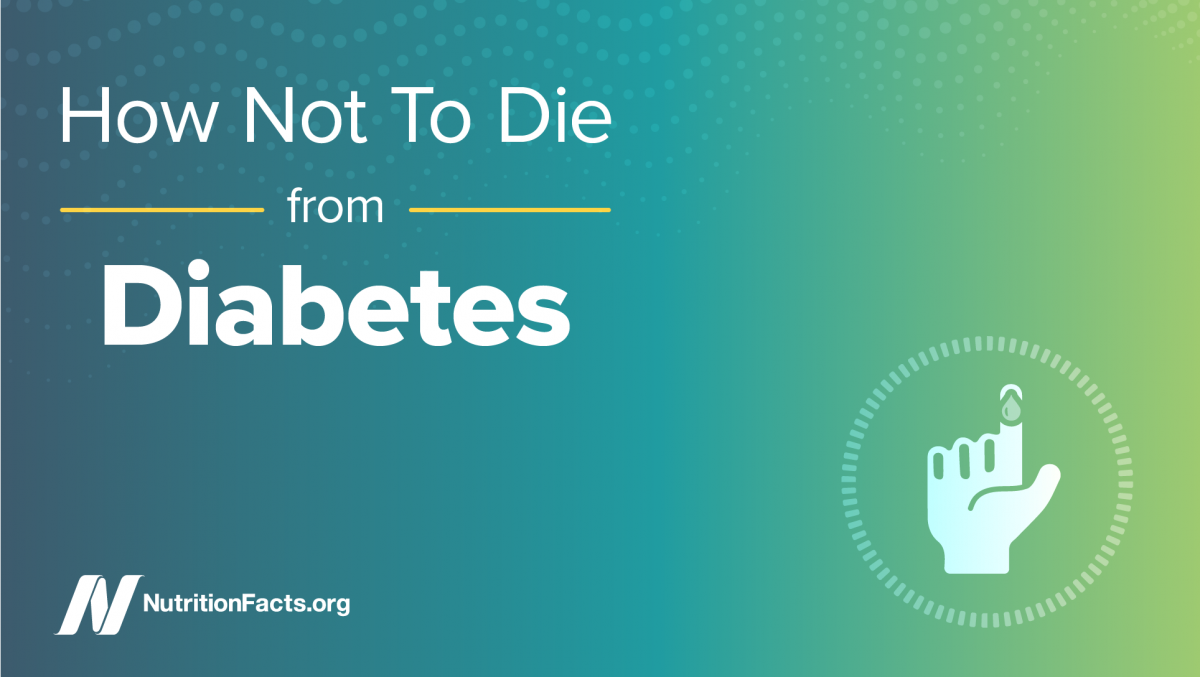
How Not to Die from Diabetes
Type 2 diabetes can be prevented, arrested, and even reversed with a healthy enough diet.
Animal Protein Compared to Cigarette Smoking
Only about 1 in 10,000 people live to be 100 years old. What’s their secret?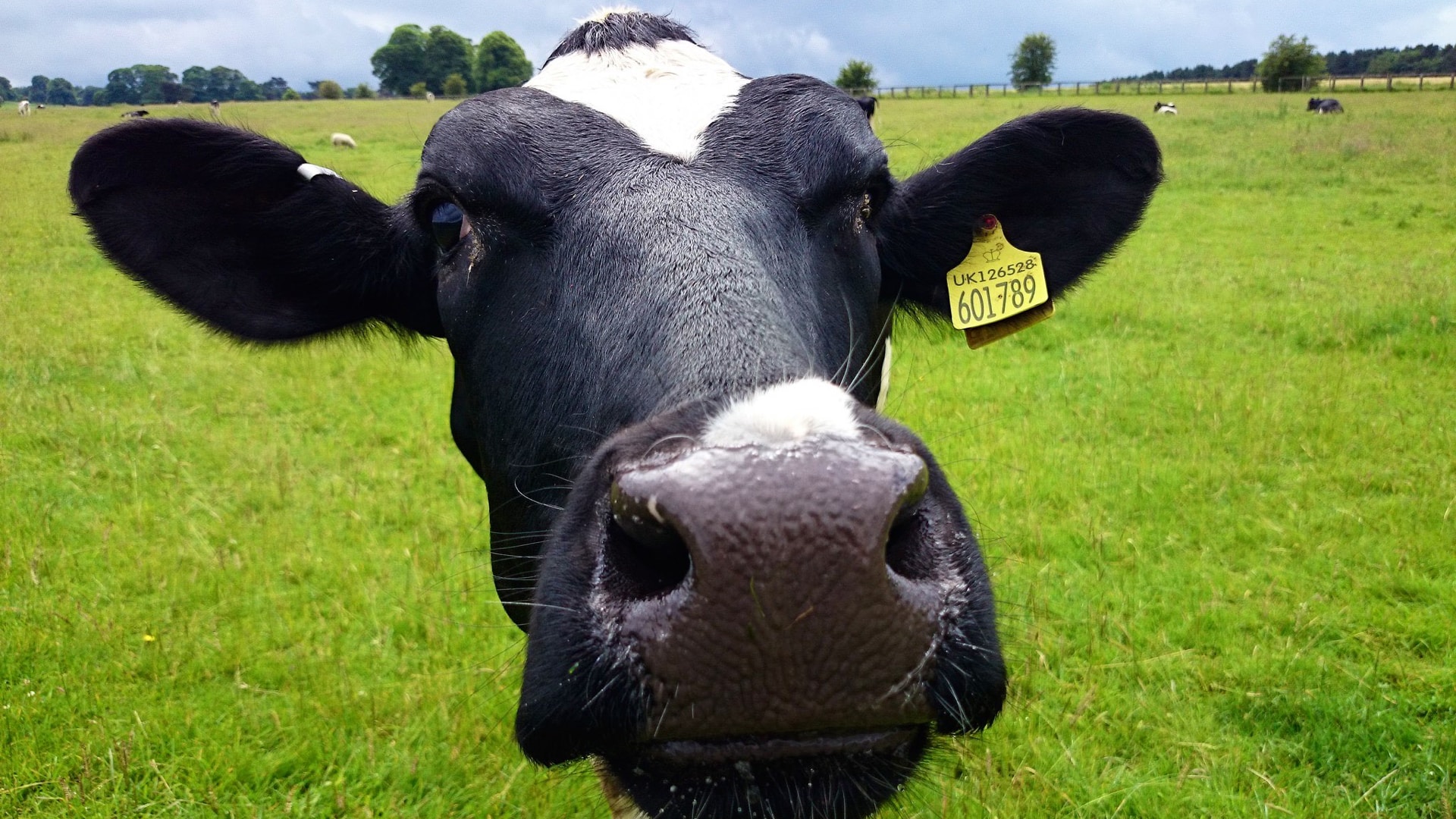
The Protein-Combining Myth
The myth that plant proteins are incomplete, necessitating protein combining, was debunked by the scientific...
Diabetes Reversal: Is It the Calories or the Food?
Even when study subjects were required to eat so much that they didn’t lose any...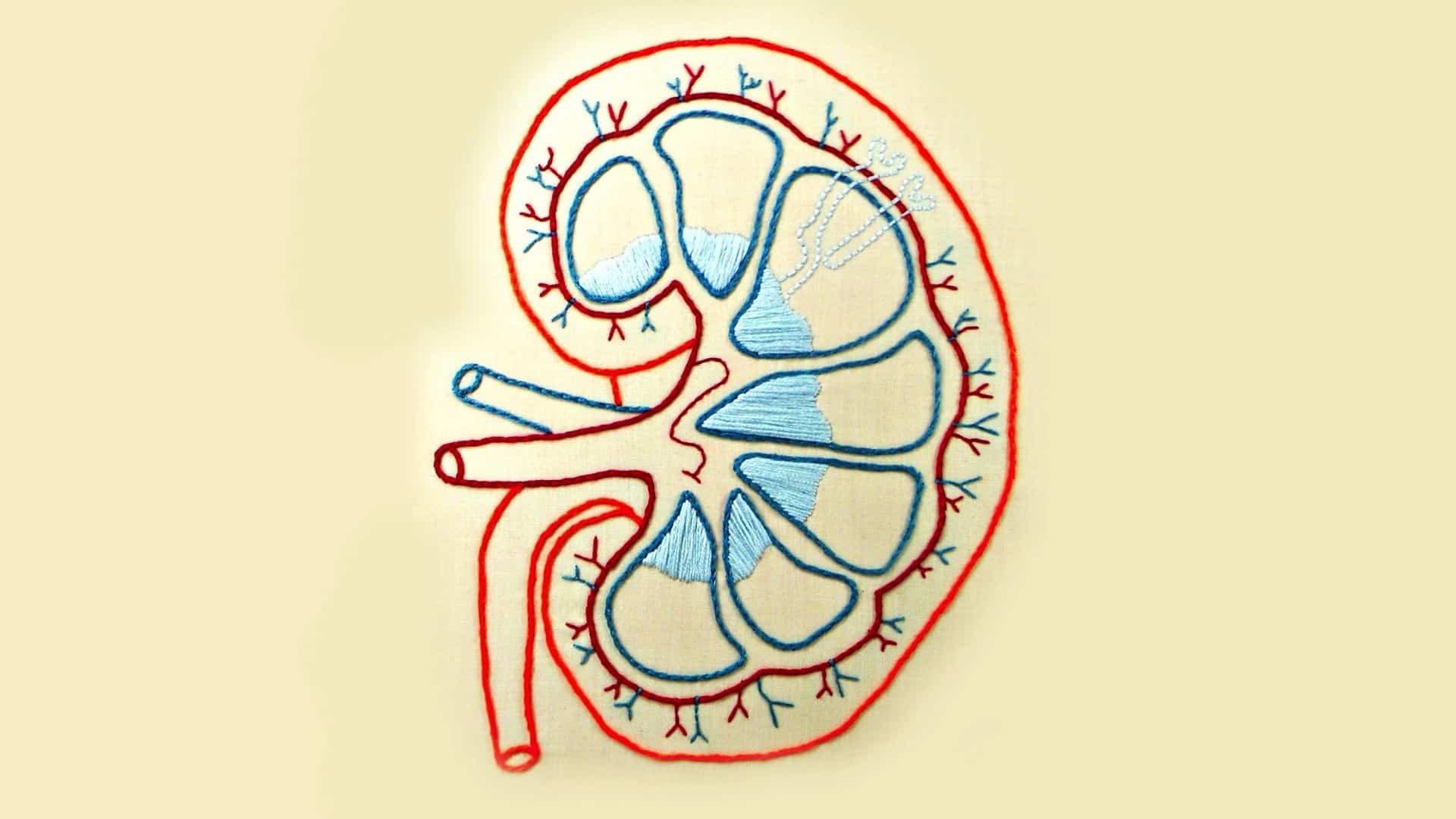
Protein Source: An Acid Test for Kidney Function
Dietary Acid Load is determined by the balance of acid-inducing food, such as meats, eggs,...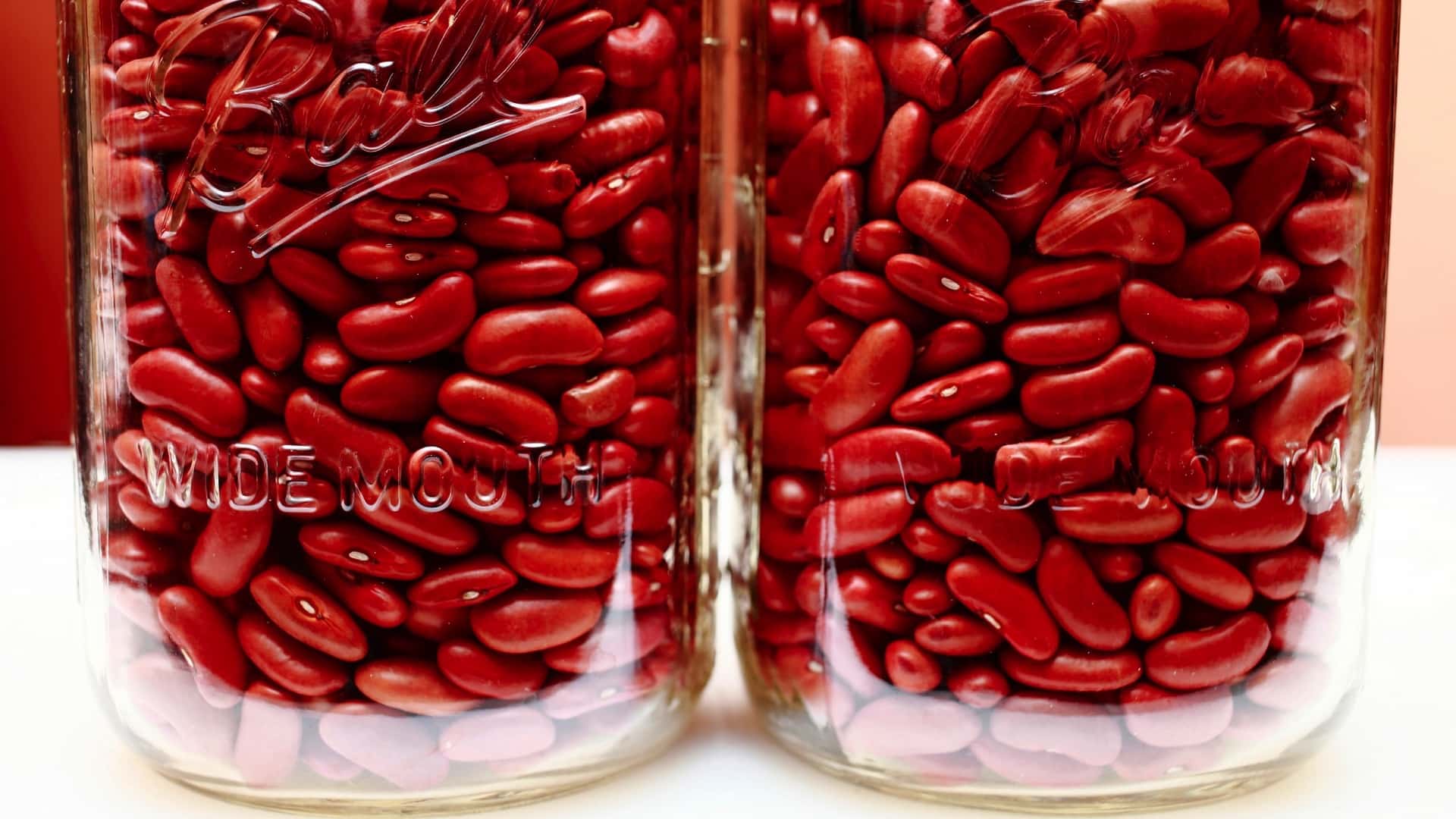
Which Type of Protein Is Better for Our Kidneys?
Anti-inflammatory drugs abolish the hyperfiltration and protein leakage response to meat ingestion, suggesting that animal...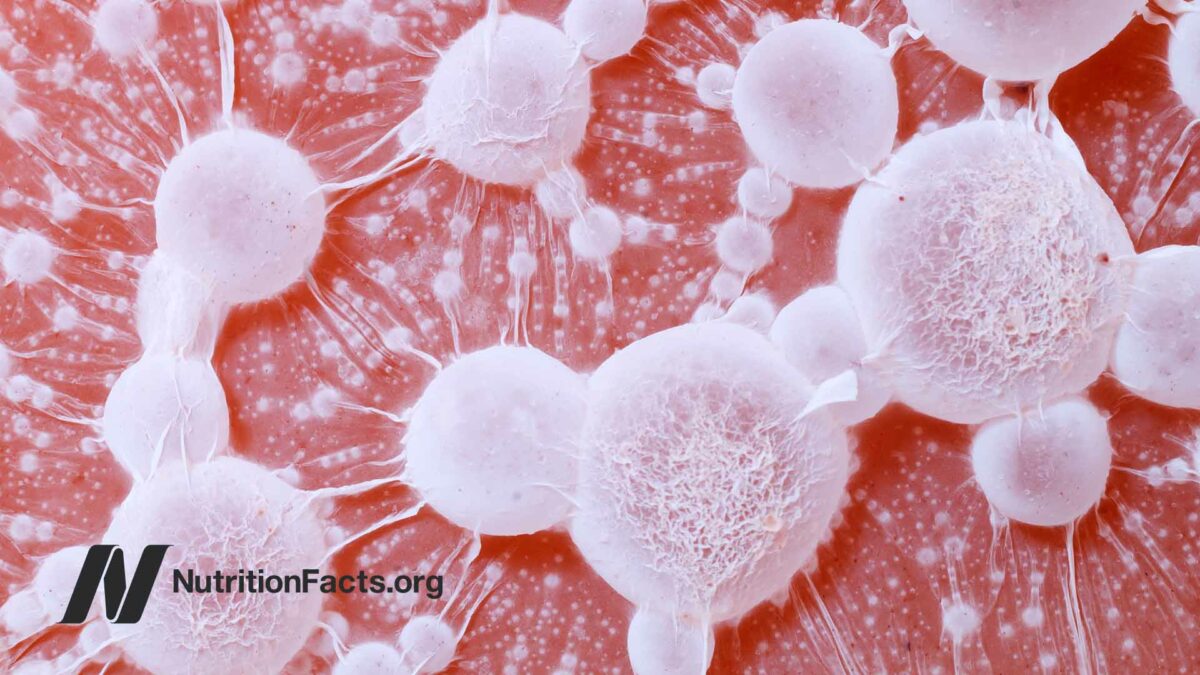
Putrefying Protein and “Toxifying” Enzymes
Certain gut bacteria can “retoxify” carcinogens that your liver successfully detoxified, but these bacteria can...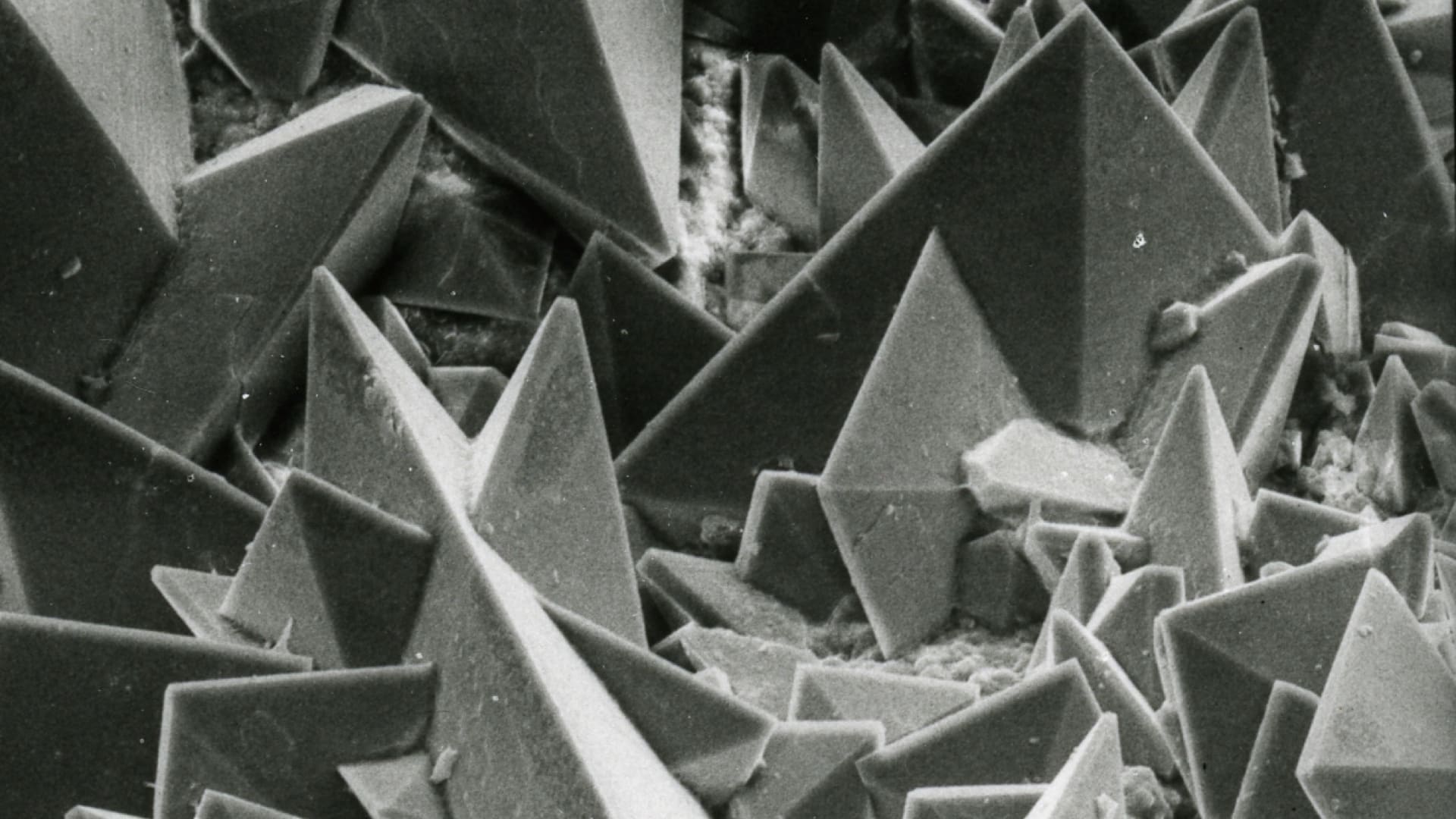
How to Prevent Kidney Stones with Diet
Interventional studies support the population data that animal protein consumption appears to markedly increase the...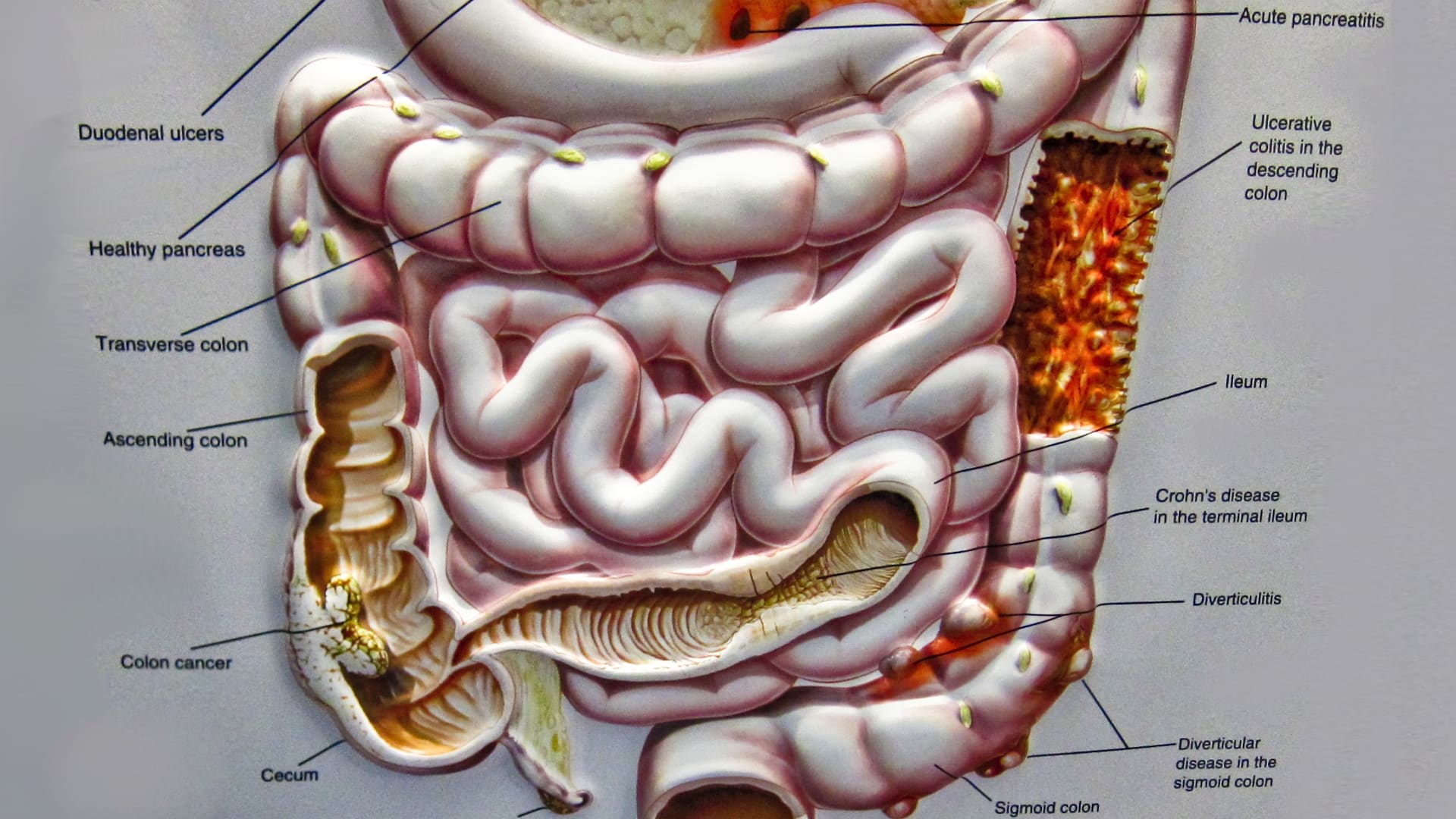
Preventing Crohn’s Disease with Diet
Diets centered around whole plant foods may help prevent Crohn’s disease through the benefits of...
Caloric Restriction vs. Animal-Protein Restriction
The lifespan extension associated with dietary restriction may be due less to a reduction in...All Videos for Animal Protein
-

How Not to Die Documentary
In celebration of the 10th anniversary of the publication of How Not to Die, a documentary about my life and work.
-

Is One Egg a Day Too Much?
Meta-analyses of studies involving more than ten million participants confirm that greater egg consumption confers a higher risk of premature death from all causes.
-

The Trade-Off Between Fertility and Longevity, and Causes of Precocious Puberty
A century ago, the age of first menstruation averaged as late as nearly 17. Why is sexual maturity coming so much earlier now?
-

How to Get Rid of Garlic Breath
After study participants took some garlic, researchers gave them whey protein, lemon juice, green tea, chlorophyll, 7UP soda, a raw pink lady apple, a cooked apple, parsley, spinach, and mint leaves. Which do you think worked best?
-

A Testimonial from Dr. Ornish’s Alzheimer’s Progression Reversal Study
What does improving the cognition and function of Alzheimer’s patients with lifestyle medicine actually translate to in terms of human impact?
-

Can Alzheimer’s Disease Be Reversed with a Plant-Based Diet?
Dr. Dean Ornish publishes the first randomized controlled trial investigating whether a plant-based diet and lifestyle program may reverse the course of early-stage Alzheimer’s disease.
-

How to Delay the Age of Menopause with Diet and Lifestyle Factors
Approximately half of the variability of age of menopause among women is explained by genetics. What behaviors or circumstances can help explain the rest?
-

Why Do Milk Drinkers Live Shorter Lives on Average?
How might we reduce the risk of premature death from dairy consumption?
-

How Not To Age – Live Presentation
In this live lecture, Dr. Greger offers a sneak peek into his latest book, How Not to Age, a New York Times Best Seller.
-

The Supplement Shown to Slow Age-Related Hearing Loss
Some studies found that higher levels of folate in the blood seem to correlate with better hearing, so researchers decided to put it to the test.
-

Age-Related Hearing Loss Is Preventable, So What Causes It?
Why do some populations retain their hearing into old age?
-

Why Vegans Should Eat More Plant-Based
One cannot assume that simply avoiding animal foods will necessarily produce a healthy diet.
-

Plant-Based Diet for Minimal Change Disease of the Kidney
What are the three reasons plant protein is preferable to animal protein for kidney protection?
-

Plant-Based Diet for Treating and Reversing Stage 3 Kidney Disease
I share a touching story of the power of plant-based eating for chronic kidney failure.
-

A Case of Stage 3 Cancer Reversal with Fasting
I go over a case report of water-only fasting, followed by a whole food, plant-based diet for follicular lymphoma.
-

Oatmeal Diet Put to the Test for Diabetes Treatment
What are the extraordinary, lasting benefits we may get from a few days of an oatmeal diet?
-

How Does Oatmeal Help with Blood Sugars?
The prebiotic fiber in oats helps to explain why oatmeal can improve diabetic control.
-

Is Oatmeal Good for People with Diabetes?
Before there was insulin, there was the “oatmeal cure.”
-

The Best Diet for Fibromyalgia and Other Chronic Pain Relief
Anti-inflammatory diets can be effective in alleviating chronic pain syndromes.
-

Treating Parkinson’s Disease with Fava Beans (Faba or Broad Beans)
Fava bean sprouts and soy nuts are put to the test for Parkinson’s disease as natural sources of L-dopa.
-

Effects of Tongue Scraping on Plaque, Gingivitis, and Cavities
Tongue scraping and tongue brushing have been practiced for centuries in many continents around the world, but do they do anything?
-

Vitamin D May Explain Higher Bone Fracture Risk in Vegans
A combination of low calcium intake and low vitamin D exposure may explain higher bone fracture rates in British vegans.
-

Lower Protein Diet Proven to Help Kidney Disease
How might we cut the risk of dialysis and death in half?
-

Why All Athletes Should Eat Plant-Based Diets
Enhance athletic performance with diet.
-

Foods That Cause and Help Halitosis (Bad Breath)
Most bad breath is due to the decay of sulfur-containing proteins.
-

Fasting-Mimicking Diet Before and After Chemotherapy
How might we replicate the protective effects of fasting with food?
-

The Best Diet for Healthy Aging
Swapping just 1 percent of plant protein in place of animal protein was associated with significantly less age-related deficit accumulation.
-

How Big Meat Manipulated the Science
Big Meat downplays the magnitude of meat mortality.
-

Animal Protein vs. Plant-Based Protein
I discuss a public health case for modernizing the definition of protein quality.
-

Natural Dietary Treatments for Enlarged Prostate BPH
Cranberries and pumpkin seeds are put to the test for benign prostatic hypertrophy.
-

How to Boost FGF21 with Diet for Longevity
Fasting and exercise can boost the longevity hormone FGF21, but what can we eat—or avoid eating—to get similar effects?
-

How to Reduce the Glycemic Impact of Potatoes
Broccoli, vinegar, and lemon juice are put to the test to blunt the glycemic index of white potatoes.
-

How to Help Control Cancer Metastasis with Diet
Randomized controlled trials show lowering saturated fat intake can lead to improved breast cancer survival.
-

Preventing Inflammatory Bowel Disease with Diet
Eating a diet filled with animal products can disrupt your microbiome faster than taking an antibiotic.
-

The Health Effects of Mycoprotein (Quorn) Products vs. BCAAs in Meat
Clinical trials on Quorn show that it can improve satiety and help people control cholesterol, blood sugar, and insulin levels.
-

Plant-Based Protein: Are Pea and Soy Protein Isolates Harmful?
What are the different impacts of plant protein versus animal protein, and do the benefits of plant proteins translate to plant protein isolates?
-

Vegetarians and Stroke Risk Factors—Animal Protein?
Might animal protein-induced increases in the cancer-promoting grown hormone IGF-1 help promote brain artery integrity?
-

Pandemics: History and Prevention
How to treat the cause by preventing the emergence of pandemic viruses in the first place (a video I recorded more than a decade ago when I was Public Health Director at the HSUS in Washington DC).
-

The Effects of Hormones in Milk on Infertility in Women
Dairy consumption is associated with years of advanced ovarian aging, thought to be due to the steroid hormones or endocrine-disrupting chemicals in cow milk.
-

Are BCAA (Branched Chain Amino Acids) Healthy?
Why we may want to strive not to exceed the recommended intake of protein.
